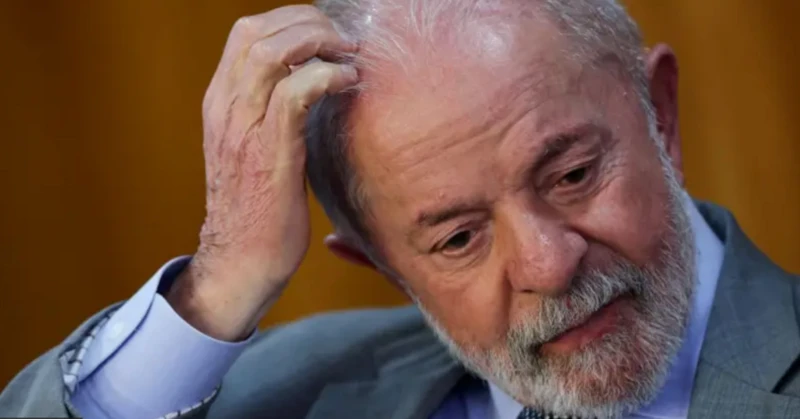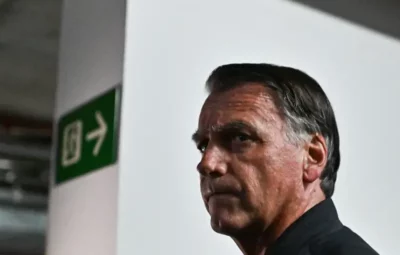
Lula government members heard by the report treat the rates announced by Donald Trump as a reality and assess as remote the possibility that the American will take off the decision
Members of the closest circle of President Luiz Inacio Lula da Silva (PT) already work with the hypothesis that US President Donald Trump will not retreat this time and that 50% rates on Brazilian products announced by him should, in fact, take effect from August 1. Officially, however, the government still bets on a way out via negotiation, despite seeing the possibility of a distant agreement at this time.
According to three sources heard by BBC News Brasil on a reserved basis, the signs sent by the White House in recent days have been interpreted at Planalto Palace as demonstrations that at least for now, the US government would be willing to bring tariff threats over Brazilian products below.
These signs include Trump’s statements and posts on Brazil in recent days and the US government’s decision to revoke visas to ministers of the Supreme Court (STF), including Alexandre de Moraes, and the Attorney General, Paulo Gonet.
The possibility of a total or partial Trump retreat is not yet fully discarded by government members, as Trump has turned back in other cases such as the tariffs imposed on China and other business partners since it started its new tariff policy in April this year.
But according to the sources consulted by the report, the possibility of flexibility of tariffs or even postponement in the Brazilian case would have been further in recent days. With just over 10 days until the date set by Trump for the start of tariffs, the government intends to keep its performance in three pillars:
- maintenance of formal negotiations;
- Sensitization of US politicians and entrepreneurs on the impacts of the measure; and
- Preparation for eventual retaliation.
Donald Trump has linked the rates announced to Brazil to the process in which Jair Bolsonaro is a defendant at STF | Getty Images
Sloop
President’s interlocutors have always treated Trump’s eventual retreat regarding tariffs as a not so remote possibility.
This was one of the reasons, even for which the government has avoided directly speaking how the government will retaliate if the fares between actually in force.
In informal conversations, some of them resembled the American rhetoric of China, Mexico or Canada, three of the first and main targets of the US President’s tariff policy.
In the case of China, Trump began announcing 10% rates that rose until 145%.
After China responds by raising their tariffs on US products and imposing restrictions on rare land exports to the United States, the two countries reached an agreement and rates on Chinese products were 55%on average.
Trump also settled back to the European Union. After announcing 50% rates on the block products in May, he postponed the start of charges for the rates on July 9. Now US administration negotiates rates on block products between 15% and 20%.
But according to the sources heard by BBC News Brasil, the possibility of retreat seems increasingly remote in the Brazilian case.
The main reason for this would be in the main motivation of tariffs to Brazil.
An interlocutor of the president stated that, unlike what happened to other countries, Trump’s fares of Brazil would have essentially political rather than economic motivation.
A proof of this, according to him, would be the fact that Brazil has a commercial deficit $ 410 billion with the United States in the last 15 years. The other supposed proof of this thesis is that Trump explicitly linked the rates on Brazilian products to the STF trial in which former President Jair Bolsonaro (PL) is defendant.
None of the letters released by Trump announcing tariffs, says this interlocutor, mentioned any factor in the country’s internal policy to justify tariffs.
As the United States linked tariffs at the end of criminal proceedings against Bolsonaro, this interlocutor says, there would be no way to believe that Americans would indeed be interested in some kind of negotiation.
And without negotiation, it would be difficult to suppose that Trump can retreat, pointed out the source heard by BBC News Brazil.
“The way Brazil has treated former President Bolsonaro, a highly respected leader around the world during his term, including the United States, is an international shame. This trial should not be happening. It is a witch hunt that should run out immediately!” Says an excerpt from the letter signed by Trump in which he announced the tariffs to Brazil.
Another interlocutor of the president heard by BBC News Brazil says that, because of the signs sent by the US government so far, the goal of the Trump administration seems to be of exerting some kind of influence on the 2026 electoral process.
Under this logic, maintaining rates to Brazil and sanctions to members of the judiciary would be a way of trying to wear out President Lula’s current government and pressure Jair Bolsonaro’s electoral rehabilitation so that he can run for the presidency in 2026.
The bet would be in a Bolsonaro victory or some of his closest allies to be aligned with Trump’s interests in areas such as strategic mineral access and technology platforms regulation.
“I am not surprised to see him leading in the polls; you were a highly respected and strong leader who served your country well […] It is my sincere hope that the Government of Brazil will change its course, stop attacking political opponents and end up with its ridiculous regime of censorship. I will be watching closely, ”said Trump in a letter released on Friday (18/7), before Bolsonaro was the target of an STF authorized Federal Police operation and determined that the former president use an electronic anklet and run out of access to social networks.
Currently, Bolsonaro is ineligible for convictions by the Electoral Court and he is still a defendant in a criminal case that is being processed in the STF for his alleged involvement in an attempted coup d’état arising from his electoral defeat in 2022. Bolsonaro, in turn, denies his involvement in any crime.
 Jair Bolsonaro was the target of a Federal Police operation on Friday (18/7) and is now required to wear an electronic anklet. He classified the action as a “supreme humiliation” | EPA
Jair Bolsonaro was the target of a Federal Police operation on Friday (18/7) and is now required to wear an electronic anklet. He classified the action as a “supreme humiliation” | EPA
Negotiation, sensitization and… retaliation
With the possibility of apparently distant retreat, the government maintains the strategy of trying to maintain at least officially the negotiating channels with the United States Commerce Representative (USTR), currently conducted by Vice President and Minister of Development, Industry, Commerce and Services, Geraldo Alckmin (PSB).
Since the announcement of tariffs, the government has been holding meetings with representatives of economic sectors such as industry, agribusiness and mining to study alternatives to tariffs and strategies to try to reverse them.
One of the government’s outbreaks, according to one of the government members heard by BBC News Brazil, is to make Brazilian entrepreneurs trigger their clients in the United States so that they can convince parliamentarians and members of the US government on the impacts of tariffs on Brazilian products.
One of the bets has been reinforcing the thesis that tariffs on Brazil will have direct impacts on ordinary aspects of the average American life such as breakfast, as products such as coffee and orange juice will reach the country more expensive.
Another way that is being explored is the sending of a parliamentary mission to the United States, led by Senator Nelsinho Trad (PSD-MS).
A group of eight parliamentarians goes to Washington in the coming days to try to convince US parliamentarians and press the Trump government against tariffs.
A member of the government heard by BBC News Brasil as reserved said that establishing channels of communication with the Trump government has been one of the main difficulties encountered by the government.
According to him, decisions about tariffs would not have been defined through traditional channels such as the professional team of the State Department or even USTR, with whom the Brazilian government had been contacting since the beginning of the year.
Instead, the government member continues, the decision seems to have been taken by a group closer to the president and politically linked to the Bolsonaro family.
This political influence was being enhanced by the performance of the licensed federal deputy Eduardo Bolsonaro (PL-SP), who moved to the United States at the beginning of the year.
At the same time, teams from the Ministry of Finance, the MDIC and the Presidency of the Republic continue to study measures to be used for any retaliation promised by Lula.
In his statement in a national TV network last week, Lula said the country would seek ways to react to tariffs. He classified tariffs as an “unacceptable blackmail.”
“If necessary, we will use all legal instruments to defend our economy. From resources to the World Trade Organization to the Reciprocity Law, approved by the National Congress,” said the president.
Last week, the petista mentioned that the government evaluates increasing the taxation of technology platforms.
“The world has to know one thing: this country is sovereign only because the Brazilian people are proud of this country. I wanted to tell you that we will judge and will charge taxes from US digital companies,” Lula said at an event of the National Students Union (UNE), in Goiânia, on Thursday (18/7).
The measure, however, does not seem to be consensus within the government.
After the president’s speech on Saturday (19/7), the Ministry of Finance posted a message on his social networks denying the proposal.
“Finance Minister Fernando Haddad denies that the Brazilian government is evaluating the adoption of more rigorous control measures on dividends as a form of retaliation for the United States adopted and reaffirms that this possibility is not into consideration,” said the post.
An interlocutor of the president heard by the report said that the government does not intend to disclose information about the sectors that may be retaliated before the decision has already been closed and approved by the president.
According to him, as the scenario is unpredictable and new rates or sanctions are not discarded, the government wants to avoid giving clues about which directions intends to take as retaliation.
Nevertheless, rumors point out that the government could retaliate the United States in areas such as breaking medicine patents or copyright of audiovisual products.
Originally published by BBC News Brasil on 07/20/2025
By Leandro Prazeres in Brasilia
Source: https://www.ocafezinho.com/2025/07/21/governo-lula-ja-trata-tarifas-como-realidade-e-nao-espera-recuo-de-trump/

